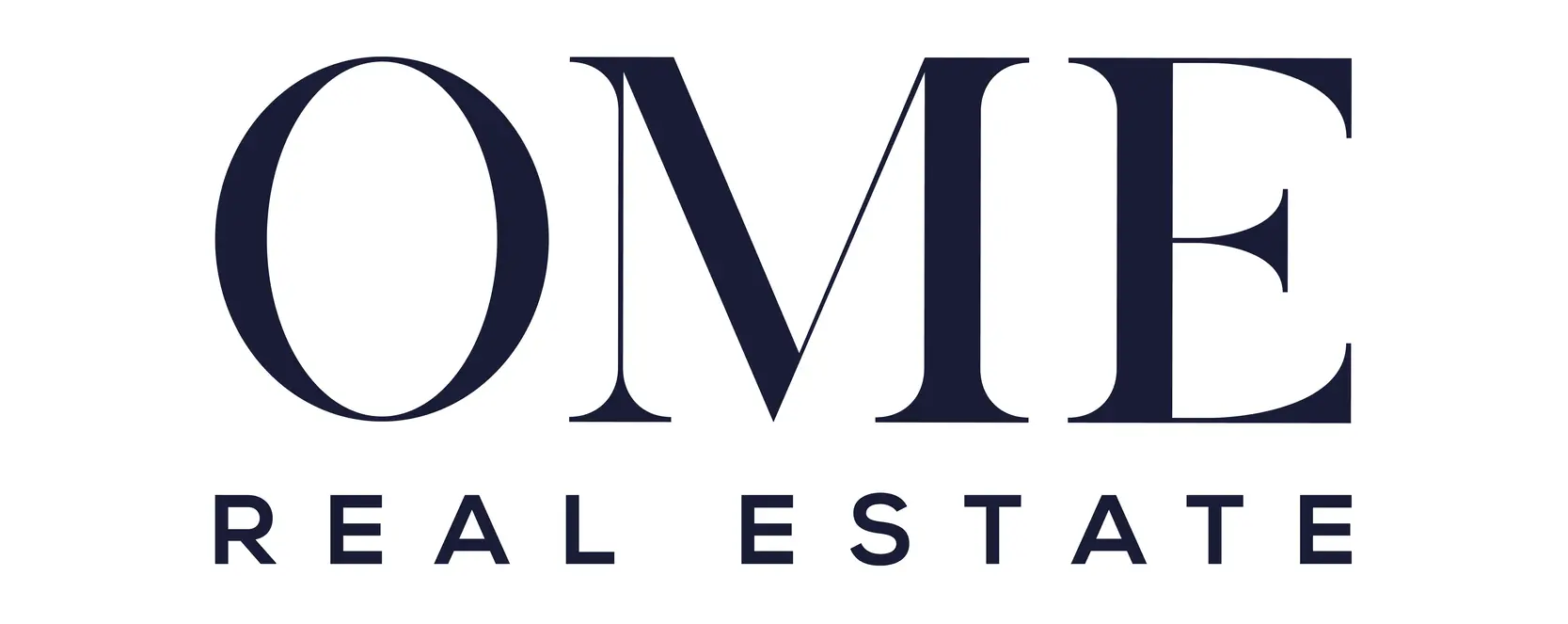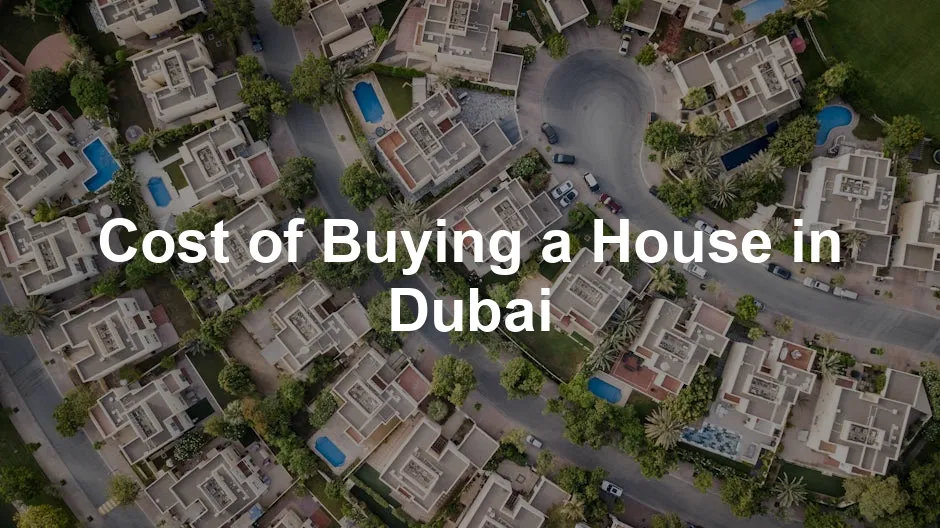Introduction
Dubai’s real estate market captivates many with its luxury and vibrancy. It’s a magnet for both residents and investors. However, understanding the total costs of purchasing a property is crucial. The listing price is only part of the equation.
Summary and Overview
Several factors influence the cost of buying a house in Dubai. Location is key, with prime areas commanding higher prices. Property type, size, and amenities also impact costs significantly.
When budgeting, consider various common expenses. Government fees, typically around 4% of the purchase price, are mandatory. Real estate agent fees range from 2% to 5% of the property value. Additionally, ongoing costs like maintenance and service fees should not be overlooked.
On average, buyers can expect these additional costs to make up about 7% to 10% of the property’s price. It’s wise to prepare a thorough budget to cover all potential expenses before making your decision.
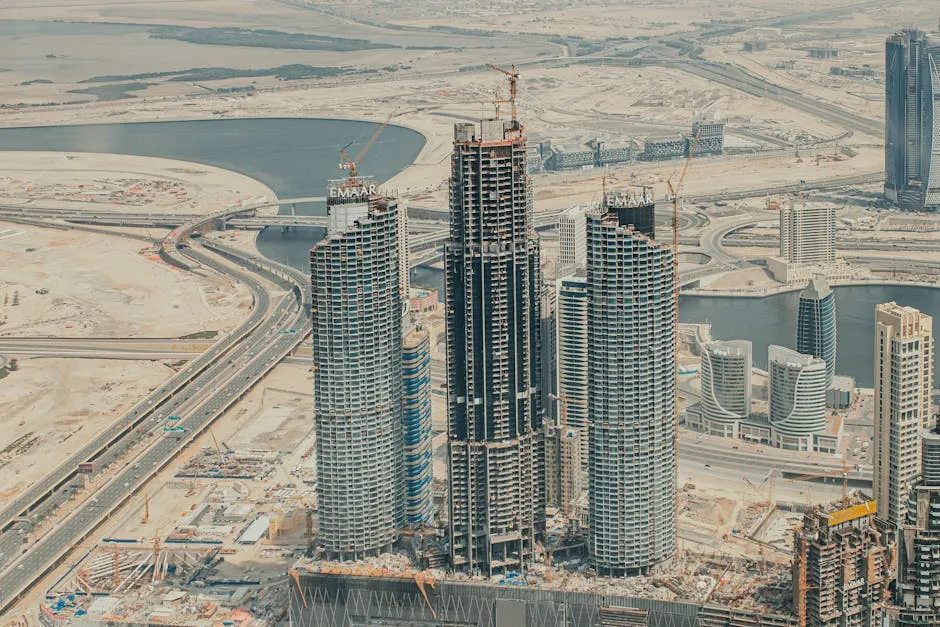
Current Real Estate Market Trends in Dubai
The Dubai property market is currently experiencing dynamic growth. Recent trends indicate a significant increase in demand, primarily driven by expatriates seeking homes. Luxury properties in areas like Dubai Marina and Downtown Dubai remain highly sought after.
Statistics show that average property prices have risen by approximately 20% in the last year. This spike reflects a growing interest among investors and residents alike. The market’s strong performance is supported by a stable economy and favorable government policies.
In 2023, the number of property transactions exceeded 110,000, marking a 44% increase from the previous year. This surge highlights the resilience and attractiveness of Dubai’s real estate landscape. If you’re considering investing, now might be the perfect time to enter this thriving market.
Understanding these trends is essential for making informed decisions. Whether you’re looking for a family home or an investment property, knowing the latest market movements can help you navigate your options effectively.

Detailed Cost Breakdown of Buying a House
When buying a house in Dubai, it’s essential to understand the complete cost breakdown. The expenses can quickly add up, exceeding the property’s listing price. Here’s a closer look at the various costs involved.
1. Government and Administrative Fees
One of the first expenses you’ll encounter is the Dubai Land Department (DLD) fees. This mandatory fee is 4% of the property’s purchase price, with an additional AED 580 for administrative costs related to the title deed.
For properties valued below AED 500,000, you’ll pay AED 2,000 plus 5% VAT for the property registration fee. If the property value exceeds AED 500,000, this fee increases to AED 4,000 plus VAT. If you’re financing your purchase with a mortgage, expect to pay a mortgage registration fee of 0.25% of the loan amount, along with an AED 290 administrative fee. These government fees can be significant, so budgeting for them is crucial.

2. Real Estate Agent and Brokerage Fees
Hiring a real estate agent can make the buying process smoother. However, it comes with costs. Typically, agents charge a commission of about 2% of the property’s sale price, plus 5% VAT. This fee compensates them for their expertise and assistance in finding your ideal home.
In addition to the agent’s commission, you may incur conveyancing fees. These fees can range between AED 6,000 and AED 10,000, depending on the complexity of the transaction. Engaging a qualified agent can ensure that all paperwork is in order, saving you from potential legal issues.
3. Mortgage Fees
If you choose to finance your home with a mortgage, several fees come into play. The bank typically charges an arrangement fee, which is usually around 1% of the loan amount, plus 5% VAT. Additionally, a property valuation fee is required, which ranges from AED 2,500 to AED 3,500 plus VAT. This valuation is essential for the bank to determine the property’s value before approving the mortgage.
Moreover, if you’re purchasing a property with an existing mortgage, a No Objection Certificate (NOC) fee may be applicable, ranging from AED 500 to AED 5,000. Understanding these mortgage-related costs upfront can help you manage your budget effectively.
Being aware of these costs helps ensure a smooth buying process. At Ome Real Estate, we guide you through each step, ensuring you understand all potential expenses involved in your property purchase.
4. Title Deed and Legal Fees
When you buy a home in Dubai, legal fees are part of the process. The Title Deed is essential, proving ownership of the property. To register this deed, you must pay a fee of approximately AED 520. This is a one-time payment made to the Dubai Land Department (DLD).
In addition to the Title Deed fee, you might incur other legal charges. These can include fees for document preparation and legal consultations. While these costs are not usually substantial, they add to your overall budget.
It’s wise to allocate a few thousand dirhams to cover all legal expenses. Having a clear understanding of these costs helps you avoid surprises during the buying process. At Ome Real Estate, we guide you through every step, ensuring you’re well-informed about these necessary fees.
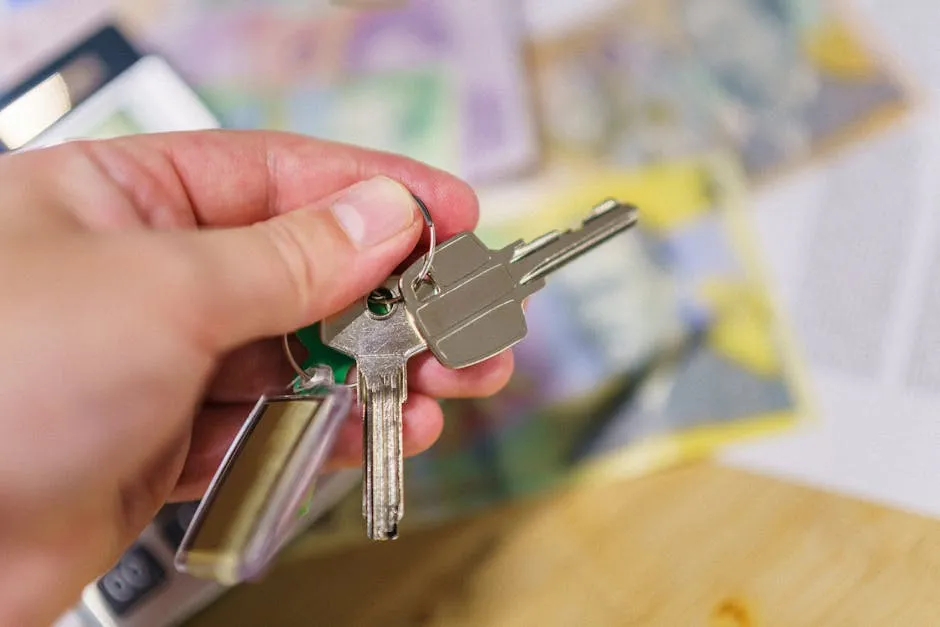
Initial Deposit and Down Payment
When purchasing a property, the initial deposit is crucial. This is usually around 10% of the purchase price for ready properties. You’ll pay this deposit to the seller, which secures the property until the transaction is finalized.
The down payment varies based on your financing method. For expatriates, it is typically 25% of the property’s value. UAE nationals may enjoy lower down payments, often around 20%.
Some developers offer flexible payment plans that lower the initial deposit to 10% for off-plan properties. However, keep in mind that these terms can differ. It’s essential to check the specific requirements of your chosen property.
Understanding these payment structures is vital. The initial deposit not only secures your choice but also shows your commitment to the purchase. At Ome Real Estate, we ensure you are aware of all payment options, making your home-buying experience smooth and straightforward.

Ongoing Costs of Home Ownership
Owning property in Dubai comes with ongoing costs that you should consider. These costs can be unexpected but are essential for maintaining your investment.
First, maintenance and service charges are part of home ownership. These fees cover the upkeep of common areas, landscaping, and security services. Expect to pay around AED 10 to AED 20 per square foot annually, depending on your property type and location.
Next, utility costs shouldn’t be overlooked. Setting up electricity and water connections through the Dubai Electricity and Water Authority (DEWA) incurs a fee. This could range from AED 2,000 for an apartment to AED 4,000 for a villa.
Insurance is another essential expense. While home insurance isn’t mandatory, it’s highly recommended. This typically costs between AED 1,000 and AED 1,500 annually. If you have a mortgage, life insurance is often necessary, generally costing 0.4% to 0.8% of the loan balance each year.
Additionally, be prepared for property tax implications. While Dubai does not impose property taxes, the DLD fee of 4% applies during the purchase.
Understanding these ongoing expenses helps you budget effectively. At Ome Real Estate, we provide insights into all costs associated with home ownership. Our goal is to prepare you for a seamless experience in the Dubai real estate market.
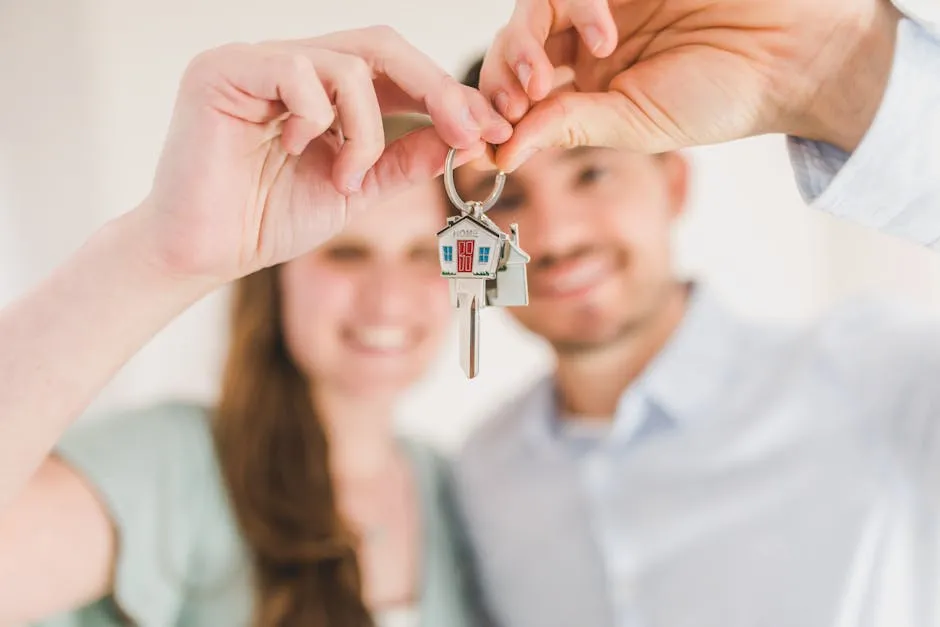
1. Maintenance and Service Charges
Owning a home in Dubai comes with maintenance and service charges. These fees cover the upkeep of common areas and facilities in your community. Expect to pay between AED 10 and AED 20 per square foot annually. The exact amount varies by location and the amenities offered. For example, luxury developments often have higher fees due to additional services like security and landscaping. It’s wise to factor these charges into your budget. Consistent maintenance ensures your property retains its value over time.

2. Insurance Costs
Home insurance is highly recommended for property owners in Dubai. While it’s not mandatory, it protects against potential loss or damage. Typical annual costs range from AED 1,000 to AED 1,500, depending on the property’s value and coverage. If you have a mortgage, life insurance might also be required. This usually costs between 0.4% and 0.8% of the outstanding loan balance per year. Investing in insurance offers peace of mind and safeguards your investment.

3. Utility Setup and DEWA Fees
Setting up utilities is another essential step for homeowners. The Dubai Electricity and Water Authority (DEWA) charges fees for establishing water and electricity connections. For apartments, these costs generally start around AED 2,000. If you’re purchasing a villa, expect to pay up to AED 4,000. These setup fees vary based on the property type and number of meters required. Planning for these expenses helps ensure a smooth transition into your new home.

Tips for Budgeting When Buying a House
Buying a house involves more than just the property price. Here are practical tips to help you budget effectively.
- Research All Costs: Thoroughly investigate all potential expenses. Understanding the full scope enables better financial planning.
- Utilize Financial Advisors: Consider working with real estate agents or financial advisors. Their expertise can help navigate costs and identify savings opportunities.
- Keep an Emergency Fund: Set aside extra funds for unexpected expenses. Homeownership can come with surprises, so being prepared financially is crucial.
- Itemize Your Budget: Break down your budget into categories like government fees, maintenance, and utilities. This approach gives you a clearer picture of your financial commitments.
- Visit Properties: When considering different neighborhoods, visit potential homes. This helps you gauge the community and its associated costs, like maintenance fees.
- Negotiate Where Possible: Don’t hesitate to negotiate purchase prices or fees with sellers. A small reduction can lead to significant savings over time.
- Plan for Future Costs: Remember to account for ongoing costs, such as service charges and insurance. These will impact your monthly budget long after purchase.
By following these budgeting tips, you can ensure that you’re financially prepared for all aspects of homeownership in Dubai. Remember, at Ome Real Estate, we’re here to guide you through every step of your property purchase, helping you stay informed and empowered in your decisions.
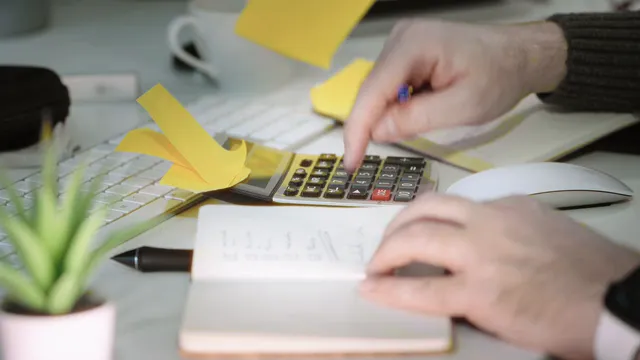
Conclusion
Understanding the costs involved in buying a house in Dubai is vital for making informed decisions. Beyond the initial purchase price, ongoing expenses like maintenance, insurance, and utilities can significantly impact your budget. It’s essential to conduct thorough research and plan ahead. By doing so, you’ll be better equipped to navigate the Dubai real estate market and enjoy your new home. For personalized assistance, contact Ome Real Estate. We’re here to help you every step of the way!
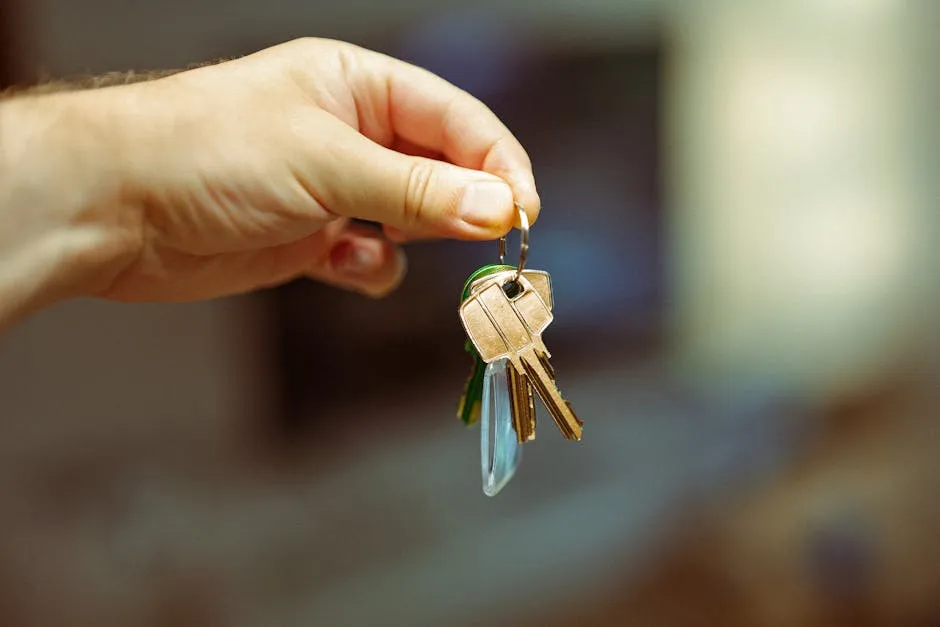
FAQs
What are the key fees to consider when buying a house in Dubai?
When purchasing property, consider government fees, which are typically 4% of the purchase price. Real estate agent fees usually range from 2% to 5%. Don’t forget about mortgage registration, maintenance, and service charges.
Is property insurance mandatory in Dubai?
Home insurance is not mandatory but highly recommended. It protects against potential loss or damage. If you finance your purchase with a mortgage, life insurance is often required.
How much should I budget for additional costs when buying a house?
Budget for approximately 7% to 10% of the property’s price for additional costs. This can include government fees, agent commissions, and ongoing maintenance expenses.
What is the typical down payment required to buy a house in Dubai?
The standard down payment is usually 25% for expatriates and 20% for UAE nationals. Some developers may offer lower initial deposits, particularly for off-plan properties.
Are there hidden costs associated with buying property in Dubai?
Yes, potential hidden costs include maintenance fees, utility setup charges, and various administrative fees. Being aware of these can help you better prepare your budget.
Please let us know what you think about our content by leaving a comment down below!
Thank you for reading till here 🙂
All images from Pexels
